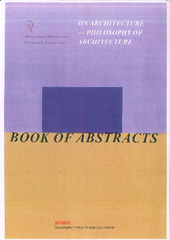Приказ основних података о документу
New Technologies in the Function of Participatory and Educational Processes in Urban Planning – Challenges of COVID-19 and the Future of Dialogue
| dc.creator | Nenković-Riznić, Marina | |
| dc.creator | Danilović-Hristić, Nataša | |
| dc.creator | Simonović Alfirević, Sanja | |
| dc.date.accessioned | 2023-02-27T11:41:37Z | |
| dc.date.available | 2023-02-27T11:41:37Z | |
| dc.date.issued | 2022 | |
| dc.identifier.isbn | 978-86-89111-29-3 | |
| dc.identifier.uri | http://raumplan.iaus.ac.rs/handle/123456789/729 | |
| dc.description.abstract | Participatory and educational processes in urban planning and design have not experienced significant steps forward or transformations during the last decades of the 20th and the first decade of the 21st century. However, with the emergence of the Covid 19 pandemic, the current paradigm related to the need for active public participation and education directly related to urban planning and decision-making is changing, and new virtual space settings of participation are defined. These circumstances raise the question of continuing active participation activities in a (permanently?) changed environment and facing the obstacles caused by the global pandemic. New experiences gained during the pandemic, and in light of the growing digitalization and migration of various spheres of engagement in virtual space, indicate the need to change the paradigm engagement of planners as educators whose presence is necessary in the offline world. Having that in mind they can achieve wider possibilities in overcoming the communication boundaries from a narrow space to the territory of the whole world. In addition, this leads to significant reduction of fuel consumption needed to overcome distant destinations and, consequently, reducing the carbon footprint. On the other hand, this type of communication allows relaxation of all participants who from their own homes can have a real experience of participating in the conference, lecture or seminar. However, this type of dialogue also has significant negative consequences, which are reflected in increased alienation between interlocutors/participants, frequent misunderstandings and inadequate communication due to technological barriers, as well as participants intertia resulting from long exhausting conferences without real interaction. On the examples of dialogue, education and participatory processes within the INTERREG ConnectGREEN project this paper will review the positive and negative repercussions of new mechanisms of participation and possible directions for achieving active participation and education that would be realized hybridlike. | sr |
| dc.language.iso | en | sr |
| dc.publisher | Belgrade : STRAND - Sustainable Urban Society Association | sr |
| dc.relation | info:eu-repo/grantAgreement/MESTD/inst-2020/200006/RS// | sr |
| dc.rights | openAccess | sr |
| dc.source | Book of Abstracts & Proceedings of 10th International Conference ‘’On Architecture — Philosophy of Architecture’’ STRAND | sr |
| dc.subject | public participation | sr |
| dc.subject | education | sr |
| dc.subject | COVID 19 | sr |
| dc.subject | paradigm change | sr |
| dc.subject | ConnectGREEN | sr |
| dc.title | New Technologies in the Function of Participatory and Educational Processes in Urban Planning – Challenges of COVID-19 and the Future of Dialogue | sr |
| dc.type | conferenceObject | sr |
| dc.rights.license | ARR | sr |
| dc.citation.spage | 60 | |
| dc.citation.rank | M32 | |
| dc.identifier.fulltext | http://raumplan.iaus.ac.rs/bitstream/id/3025/Book_of_abstracts-MNR_NDH_SSA.pdf | |
| dc.identifier.rcub | https://hdl.handle.net/21.15107/rcub_raumplan_729 | |
| dc.type.version | publishedVersion | sr |

